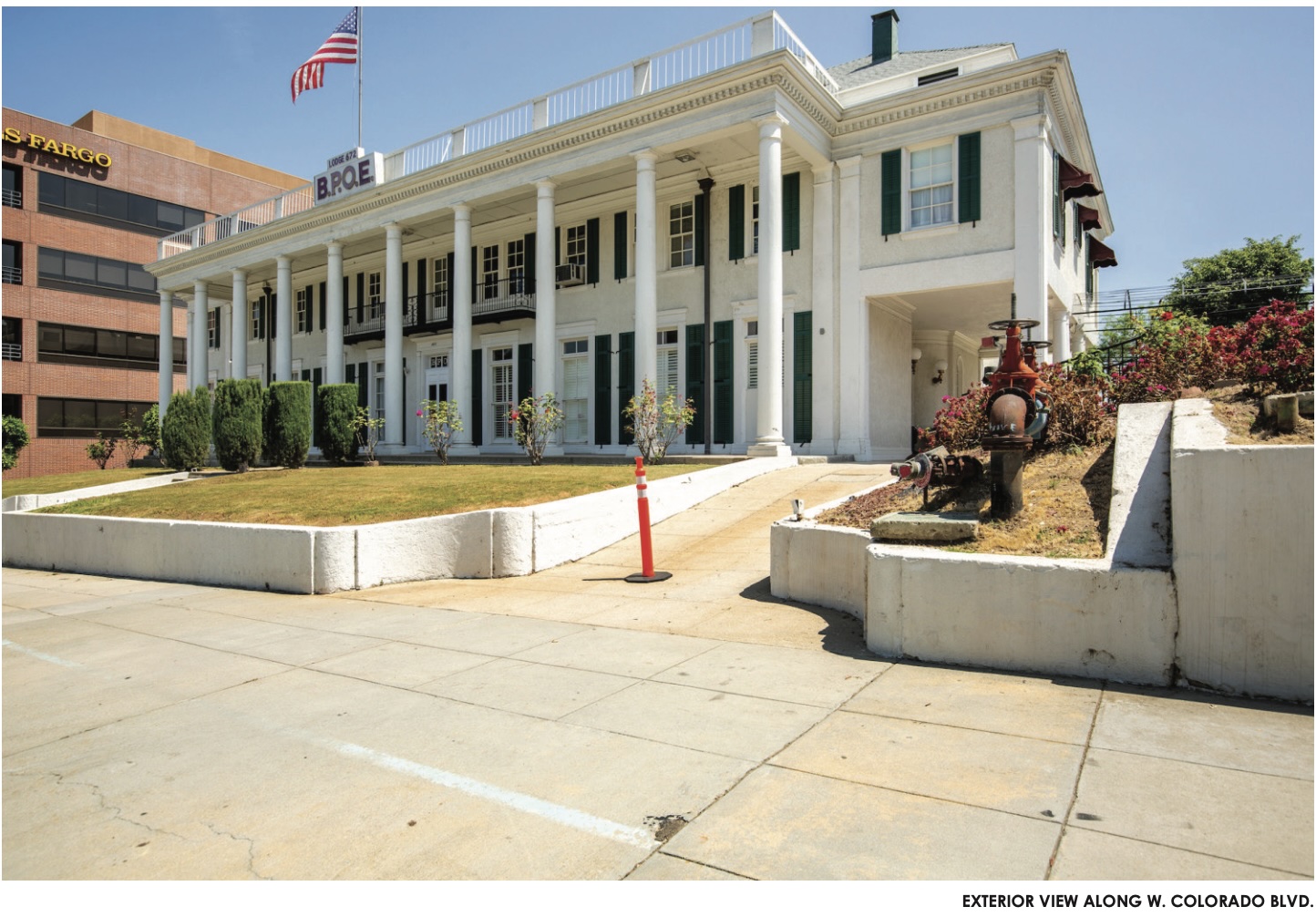
approval to the City Council.
The Benevolent Protective Order of the Elks, originally founded as the Jolly Corks in 1868 by 15 theatrical entertainers in New York City, is a fraternal organization dedicated to charity and community programs.
Its initiatives include scholarships, drug awareness, supportive programs for veterans and patriotic activities. Pasadena Elks Lodge No. 672, is the 672nd chapter of this national organization.
The building at 400 W. Colorado Blvd., designed in 1908 by prominent architect Myron Hunt with a 1928 ballroom addition by Cyril Bennett and Fitch Haskell, exemplifies the Neoclassical Revival style, or Classical Colonial Revival style.
Hunt, a leading figure in Southern California architecture before World War II, is known for such landmarks as The Huntington Library, the Rose Bowl, the Pasadena Central Library and Huntington Hospital, as well as buildings at Caltech and Occidental College. In 1928, the city of Pasadena honored him with the Arthur Noble Medal for his outstanding civic service.
Bennett and Haskell, who formed their architectural partnership in 1923, also shaped Pasadena’s architectural heritage. Their notable works include the Pasadena Masonic Temple, the Raymond Theatre, the Pasadena Civic Auditorium (with George Bergstrom), and many commercial building facades along Colorado Boulevard during the city’s 1929 street widening.
Situated at Orange Grove and Colorado boulevards, the century-old Elks Lodge serves as the quiet backdrop as the Rose Parade makes its dog-leg swing past the Norton Simon Museum every Jan. 1.
Beyond its role in the parade, the lodge’s interior spaces, including the Coral Room, the Trophy Room, the Fireside Room and the Main Ballroom, have also appeared in hundreds of movies, commercials and TV series, including “The American President” and “Desperate Housewives.”
Sue Mossman, Pasadena Heritage’s former executive director and a leading figure in Pasadena’s preservation efforts, previously told the Southern California News Group that the Elks Lodge was nominated for the National Register of Historic Places by Pasadena Heritage in 1985.
“But the Elks requested it not be listed, so it was declared ‘eligible,’ which means it’s automatically on the California register,” Mossman said.
The city’s designated historical properties may qualify for several benefits, which are evaluated on a case-by-case basis, according to city documents.
These include reduced property taxes through a Mills Act contract in exchange for preserving the property’s historical character, flexibility under the State Historical Building Code for modifications, exemptions from covered parking requirements and exceptions to modern development rules for adaptive use or relocation.


 PREVIOUS ARTICLE
PREVIOUS ARTICLE
